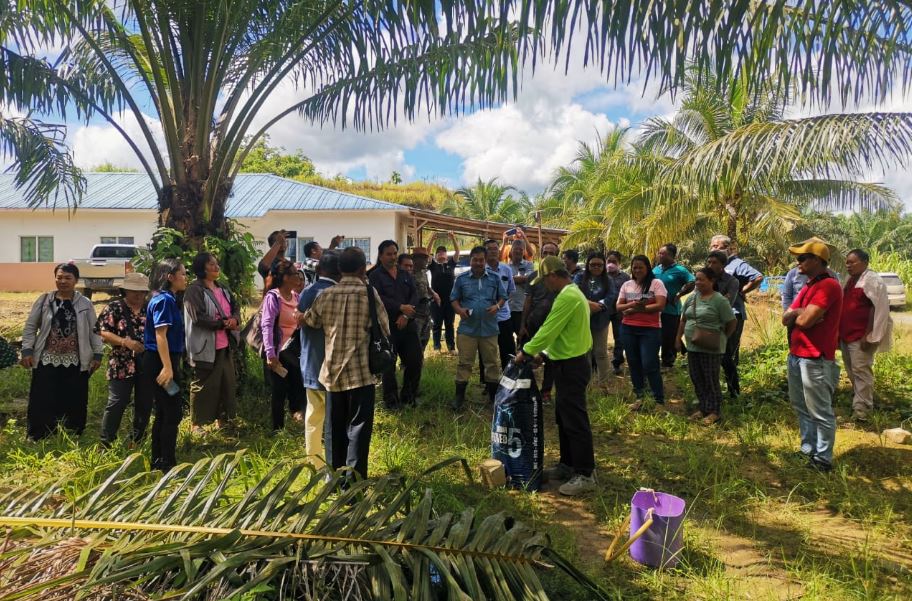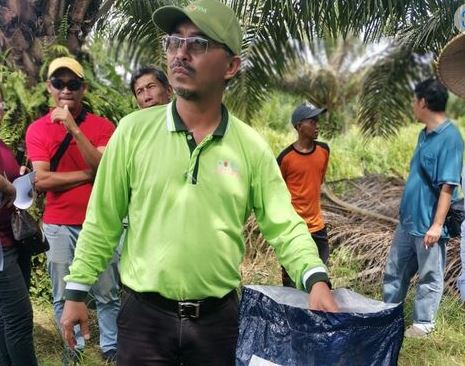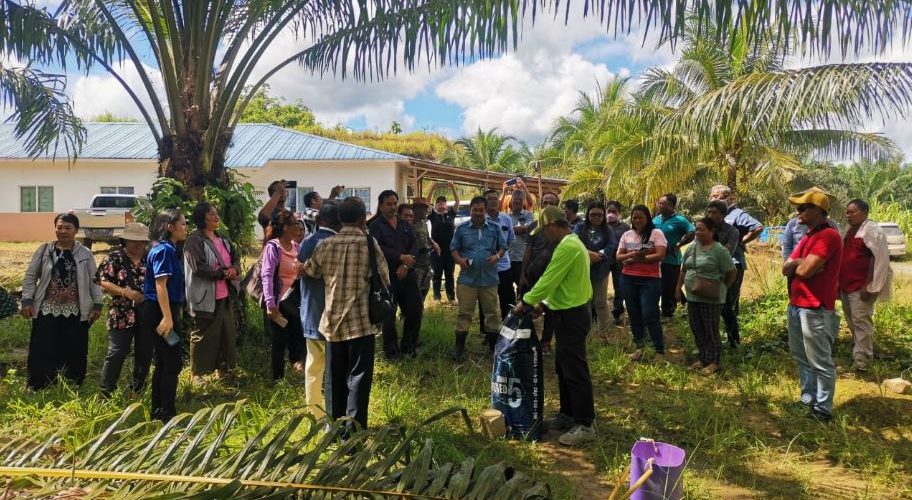The Dayak Oil Palm Planters Association (DOPPA) from Sarawak, Malaysia had raised concerns on the introduction of the European Union (EU) Corporate Sustainable Due Diligence (CSDD) on the import of palm oil by European countries.
The DOPPA have issued an open statement asking the EU Parliament to support indigenous Dayak oil palm farmers rights to development in Malaysia.
“The EU’s action against palm oil may have a significant negative impact on indigenous smallholders in Sarawak.” The DOPPA said in the statement while adding that an estimated 40,000 indigenous smallholders of oil palm will be adversely impacted if the restrictions are enforced unilaterally on Malaysia’s palm oil industry.

According to the most recent statistics on palm oil smallholders in Malaysia, approximately 500,000 families rely on the crop for income. The area cultivated for oil palm by indigenous smallholders in Sarawak is modest, with an average of three hectares per family. The majority of the developed area is ex-shifting agriculture run by families. The EU must take this into account when developing regulations affecting Malaysian indigenous oil palm farmers.
Regulations from the EU may be viewed as violating basic human rights because they discriminate against the Dayak community and other indigenous groups in Malaysia that rely on oil palm for a living.
DOPPA emphasises that the regulations were developed without the participation of Malaysian palm oil supply chain stakeholders. As a result, the enforcement of the regulations by the EU Parliament is viewed as a protectionist measure for EU edible oil products such as rapeseed and sunflower oil.
Dayak farmers share the EU’s ambition to fight climate change
The DOPPA supports the EU’s efforts to combat climate change. It is a goal shared by Dayak farmers, who have for centuries managed their lands in a sustainable manner to produce food and cash crops while protecting forested areas.
The Dayak culture is based on taking what is necessary for survival today while keeping an eye out for future generations. Denying Dayak farmers access to the EU’s premium market for palm oil on the basis of “deforestation” effectively denies Dayak farmers the opportunity for socioeconomic advancement.
The DOPPA recognises that the EU Parliament may be unaware of the contributions palm oil has made to the welfare of Malaysian indigenous peoples. As a result, the DOPPA urged Malaysia’s government to collaborate closely with the EU in order to have the Malaysian Sustainable Palm Oil (MSPO) standards recognised as a certification standard for sustainable palm oil by the EU.
“Land titles which have been awarded to Dayaks in Sarawak have been won through years of mapping work to confirm the land rights of Dayaks. These are primarily farming lands which our forefathers cultivated and are accepted by the state government as evidence of indigenous land claims.” said the President of DOPPA, Napolean Ningkos.

Undermining indigenous peoples’ rights to their ancestral lands
The DOPPA is concerned that accusations of deforestation by Western NGOs may undermine indigenous landowners’ right to decide what to do with their inheritance.
“It is ironic to hear the loud demands of Western environmental groups that indigenous peoples should have the right to their ancestral lands at COP15 in Montreal, Canada. Yet, when we exercise the right to develop our ancestral lands for oil palm, the NGOs turn the table immediately and demand the EU must restrict the palm oil we produce.” Napolean shared.
This influenced the EU to implement legislative measures such as the CSDD, which influenced Malaysian Sustainable Palm Oil standards to adopt a similar NDPE pledge. The DOPPA will meet with Malaysian policymakers to discuss establishing an exemption for indigenous developments that may occur on peatlands or cause forest loss.
Sustainably produced palm oil
DOPPA sees the EU’s acceptance that sustainably produced palm oil must include traditional owners’ rights to develop their lands as a necessary action to exercise their rights.
The DOPPA recommends that the EU accept Malaysian Sustainable Palm Oil (MSPO) standards as the best way to include Dayak farmers in the EU’s palm oil supply chain.
“The EU’s requirements have all been addressed in the revised Malaysian Sustainable Palm Oil (MSPO) standards, and DOPPA is fully committed to supporting the national sustainability agenda.” added Napolean.











